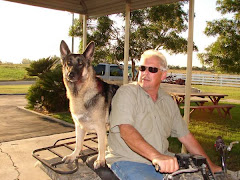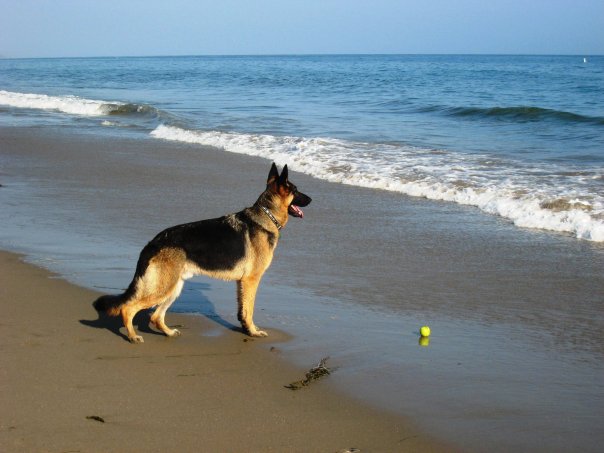FLEA AND TICK SEASON
Deblyns German Shepherds
American Fleas
While there are more than 200 species of fleas in this country, the main troublemaker for pets is the cat flea. Happy to feed on anyone in the household--cat, dog or human--these wingless insects will most likely choose a pet, whose fur provides warm camouflage for their breeding ground.
The flea life cycle, illustrated in a 794K PDF file, has four stages: eggs, larvae, pupae, and adults. Female fleas lay as many as 50 eggs a day, starting a life cycle that can be completed in as little as three weeks, depending on temperature and humidity. The eggs hatch into larvae, which feed on "flea dirt," excrement of partially digested blood. Larvae grow and molt twice, then spin cocoons, where they grow to pupae and then adults. The adult remains in the cocoon until vibrations indicate a host is nearby. This waiting can extend the life cycle. It also explains why large numbers of fleas often are seen when an empty building is reoccupied. Six-legged adults emerge and attach to a host to feed and breed, beginnning the cycle all over again.
Even when fleas elude detection on a pet, their black poppyseed-like excrement gives them away. The main problem with fleas--itching--is due not only to their bites, but also to their crawling over the skin.
Other flea bite problems and their symptoms include:
anemia in young, older or ill pets--pale gums, weakness, lethargy
transmission of tapeworm to pets--irritability, erratic appetite, shaggy coat, mild diarrhea, weight loss, seizures
transmission by rodent fleas of plague to cats--fever, swollen lymph nodes, mouth sores, swollen tongue, cough, pneumonia.
Also, some pets are extremely allergic to flea bites. In these pets, fleas may cause a rash, inflammation, and hair loss. In response, cats may compulsively overgroom.
Washing the pet's bedding regularly and vacuuming frequently also helps keep the flea population down. The vacuum bag should be changed after vacuuming and the used one burned, if possible, to prevent it from serving as a flea incubator. Cats who don't go outside have the least risk of getting fleas.
Belize has puppies
13 years ago










No comments:
Post a Comment